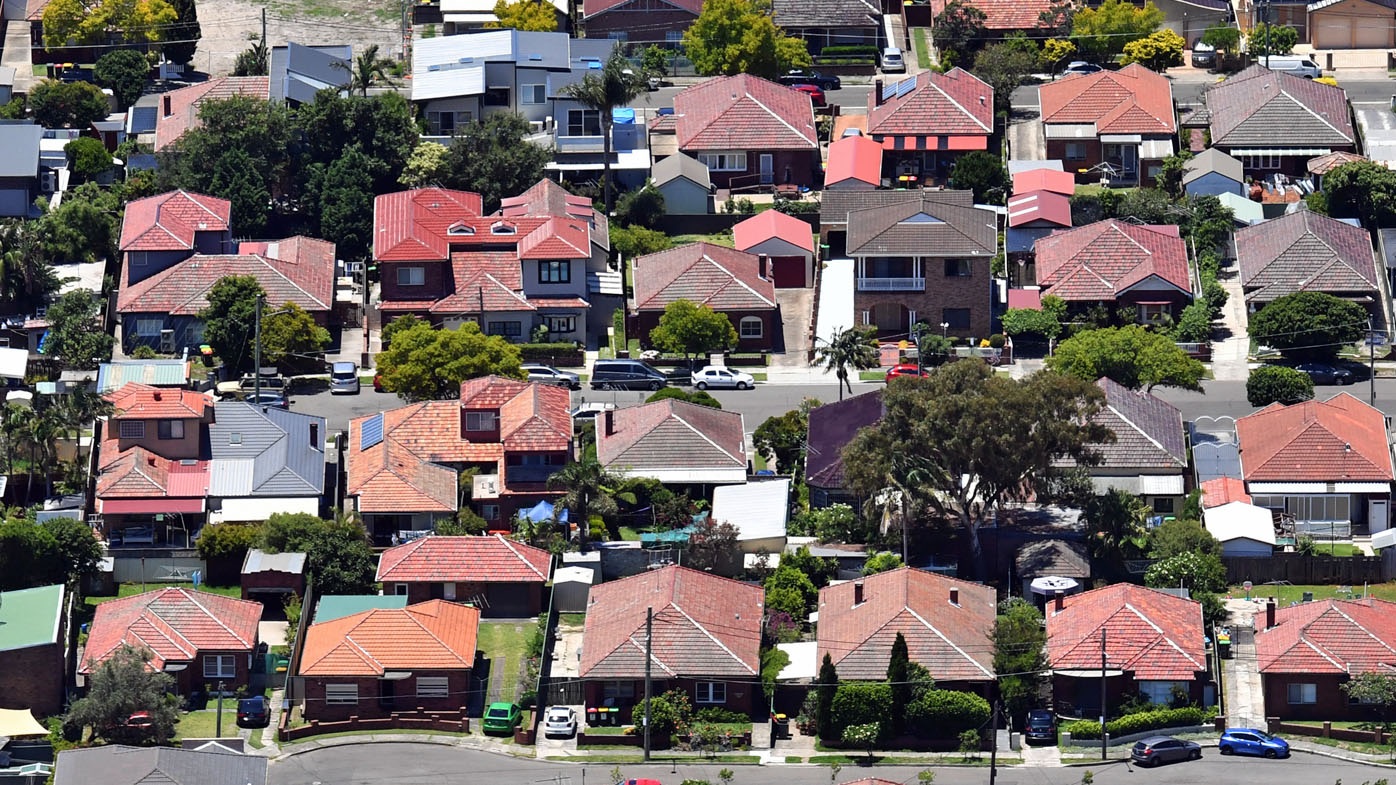The Reserve Bank of Australia has lifted the nation's interest rates for the second month in a row, raising the cash rate target by a larger than expected 50 basis points to 0.85 per cent.
For the average owner-occupier with a $500,000 mortgage, today's rate hike will see monthly repayments rise by a further $133.
On a loan as large as $1 million, today's increase will see monthly repayments increase by $265 a month.
READ MORE: Why lettuce and other vegetables are so expensive or not on shelves
Meeting at the bank's headquarters in Sydney's Martin Place this afternoon, the RBA board decided that another interest rate hike was necessary to quell soaring inflation rates.
Governor Philip Lowe said the central bank was well aware of the cost of living pressures facing Australian households, but felt today's hike was necessary based on the current economic climate.
"One source of uncertainty about the economic outlook is how household spending evolves, given the increasing pressure on Australian households' budgets from higher inflation. Interest rates are also increasing. Housing prices have declined in some markets over recent months but remain more than 25 per cent higher than prior to the pandemic, supporting household wealth and spending," he said.
"The household saving rate also remains higher than it was before the pandemic and many households have built up large financial buffers.
"While the central scenario is for strong household consumption growth this year, the Board will be paying close attention to these various influences on consumption as it assesses the appropriate setting of monetary policy."
READ MORE: Energy company tells customers to leave before prices skyrocket

Lowe said in real dollar terms, Australian households are likely to experience even worse levels of inflation than they currently are.
"Inflation is expected to increase further, but then decline back towards the 2–3 per cent range next year," he said.
"Higher prices for electricity and gas and recent increases in petrol prices mean that, in the near term, inflation is likely to be higher than was expected a month ago."

PropTrack economist Paul Ryan said today's hike was the RBA continuing its process of "normalising" interest rates after they were cut to emergency levels during the peak of the COVID-19 pandemic.
"Higher interest rate expectations have weighed on housing price growth across the country in 2022. Housing price growth has slowed significantly, with annual price growth falling from 24 per cent six months ago to only 14 per cent in the year to May," Ryan said.
"This slowdown has particularly affected the most expensive capital markets of Sydney, Melbourne and the ACT, which recorded price falls in May."
READ MORE: One in four Aussies struggling with rising cost of living

Ryan said markets were currently pricing in several consecutive rate hikes in 2022 alone.
"More interest rate increases are expected in 2022, as inflation has been higher than anticipated by the RBA. But just how high interest rates will be at the end of the year is a key source of uncertainty for the housing market," he said.
"Financial markets have priced in a cash rate two-percentage points higher at the end of the year, which would raise mortgage repayments by another 24 per cent.
"Major bank forecasters, however, do not view it likely the RBA will increase rates this quickly, predicting rate rises closer to half that much."

How do interest rates stop inflation?
In simple terms, interest rates are used as a blunt tool to soften soaring inflation because more expensive loans results in less household spending.
The more Aussie households have to spend on their mortgages, the less they have to spend in the economy – theoretically reducing the enormous demand allowing retailers, services and business to increase prices and still retain customers.
It's a blunt and imperfect measure that can't fully factor in global influences, but is one of the more powerful economic levers the RBA can pull.
The information provided on this website is general in nature only and does not constitute personal financial advice. The information has been prepared without taking into account your personal objectives, financial situation or needs. Before acting on any information on this website you should consider the appropriateness of the information having regard to your objectives, financial situation and needs.

